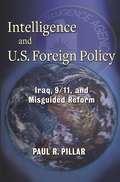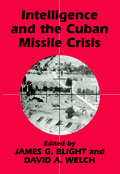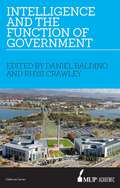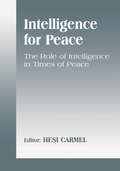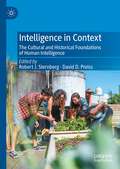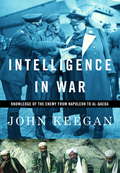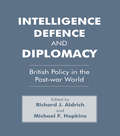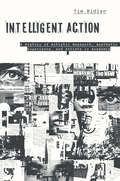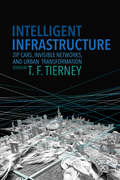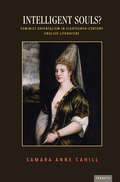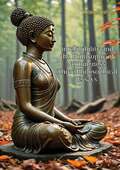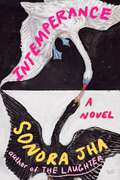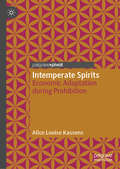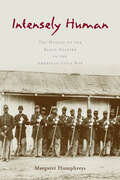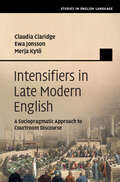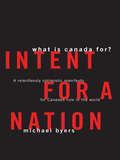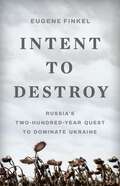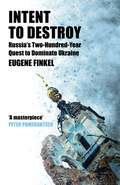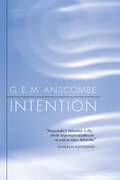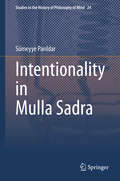- Table View
- List View
Intelligence and U.S. Foreign Policy: Iraq, 9/11, and Misguided Reform
by Paul R. PillarPaul R. Pillar's twenty-eight-year career with the CIA and the National Intelligence Council showed him that intelligence reforms, especially measures enacted since 9/11, can be deeply misguided. They often miss the sources underwriting failed policy and misperceive our ability to read outside forces. They misconceive the intelligence-policy relationship and promote changes that weaken intelligence-gathering operations. In this book, Pillar confronts the intelligence myths Americans have come to rely on to explain national tragedies, including the belief that intelligence drives major national security decisions and can be fixed to avoid future failures. These assumptions waste critical resources and create harmful policies, he claims, diverting attention away from smarter reform. They also refuse to recognize the limits of our knowledge. Pillar revisits U.S. foreign policy during the Cold War and highlights the small role intelligence played in those decisions, and he demonstrates the negligible effect America's most notorious intelligence failures had on U.S. policy and interests. He also reviews in detail the events of 9/11 and the 2003 invasion of Iraq, condemning the 9/11 commission and the George W. Bush administration for their portrayals of the role of intelligence. He offers an original approach to better informing U.S. policy, which involves insulating intelligence management from politicization and reducing the politically appointed layer in the executive branch that interjects slanted perceptions of foreign threats. Pillar concludes with principles for adapting foreign policy to inevitable uncertainty.
Intelligence and the Cuban Missile Crisis (Studies in Intelligence)
by James G. BlightThis is the first study to examine throughly the role of US, Soviet and Cuban Intelligence in the nuclear crisis of 1962 - the closest the world has come to Armageddon.
Intelligence and the National Security Strategist: Enduring Issues and Challenges
by Roger Z. George Robert D. KlineThis timely reissue of the 2004 edition (National Defense U. Press), with a new introduction by the assistant director of Central Intelligence for Analysis and Production, targets a broad audience. Based on a class at the National War College taught by the editors, this anthology of 39 previously published and new articles treats the evolution and structure of US intelligence and perspectives on controversial issues facing the intelligence community operating in a democracy. Appendices include the National Security Act and a summary of the beleaguered US Patriot Act. Not indexed. Annotation ©2006 Book News, Inc., Portland, OR (booknews.com)
Intelligence and the function of government
by Rhys Crawley Daniel BaldinoIntelligence plays an important, albeit often hidden hand, in the everyday function of government. Australia's intelligence agencies—collectively referred to as the Australian Intelligence Community (AIC)—are an established and fundamental component of the bureaucracy: they keep watch on potential problems in the name of national security, exploit weaknesses in the name of national interests, and build a picture of the complexities of the broader world for their consumers—other domestic government departments, partner intelligence agencies overseas and, most importantly, Australia's policy-makers. Their aim is to provide the government with 'information'—for that is essentially what intelligence is—to better enable it to tackle the issues confronting it; to be better armed, informed and forewarned of what might lay ahead; and to facilitate coherent policy-making. But we should not expect intelligence to be perfect, nor should we think that good intelligence guarantees good policy. This book draws on a wide range experts including academics, former and current strategic advisers and members of government, private industry professionals and intelligence community experts, to provide a diagnostic, clear-eyed approach in explaining, accessing and exposing the central foundations and frameworks necessary for effective practice of intelligence in Australia as well as the shaping of intelligence expectations.
Intelligence for Peace: The Role of Intelligence in Times of Peace (Studies in Intelligence)
by Hesi CarmelThis collection of articles is by experts in the field who are convinced that intelligence has an important role to play, not only in times of war and confrontation, but also in times of conciliation and political processes.
Intelligence in Context: The Cultural and Historical Foundations of Human Intelligence
by Robert J. Sternberg David D. PreissThis book reflects on the various ways in which intelligence can manifest itself in the wide range of diverse contexts in which people live. Intelligence is often viewed as being tantamount to a score or set of scores on a decontextualized standardized intelligence test. But intelligence always acts within a sociocultural context. Indeed, early theorists defined intelligence in terms of adaptation to the environment in which one lives. The tradition of decontextualization is old, dating back to the very beginning of the 20th century with the development of the Binet-Simon Intelligence Scales. This tradition is not only old, however, but obsolete. Because people live in different sociocultural as well as physical environments, intelligence can take somewhat different forms in different places and even at different times. The chapters in this edited volume show that intelligence viewed in the abstract is a somewhat vacuous concept - it needs to be contextualized in terms of people’s physical and sociocultural surroundings.
Intelligence in War: Knowledge of the Enemy from Napoleon to Al-Qaeda
by John Keegan'No war can be conducted successfully without early and good intelligence, ' wrote Marlborough, and from the earliest times commanders have sought knowledge of the enemy, his strengths and weaknesses, his dispositions and intentions. But how much effect, in the 'real time' of a battle or a campaign, can this knowledge have?In this magisterial new study, which will fascinate readers of both military and more general history, the author of A History of Warfare goes to the heart of a series of important conflicts to develop a powerful argument about intelligence in war. From the Napoleonic Wars to the sophisticated electronic warfare of the twenty-first century, John Keegan finds linking themes which lead to a compelling conclusion. His narrative sweep is enthralling, whether portraying the dilemmas of Nelson seeking Napoleon's fleet, Stonewall Jackson in the American Civil War, Bletchley as it seeks to crack Ultra during the Battle of the Atlantic, the realities of the secret war in the Falklands or the polymorphous intelligence issues of the contemporary fight against terrorism.
Intelligence, Defence and Diplomacy: British Policy in the Post-War World (Studies in Intelligence)
by Richard J. Aldrich Michael F. HopkinsWhat was Britain's reaction to the death of Stalin? How has Britain reconciled a modern nuclear strategy with its traditional imperial defence commitments around the world? How has secret intelligence affected the Special Relationship' since 1945? Certain clear questions and perennial themes run through British overseas policy since 1945. This book examines them, drawing on new research by leading historians and scholars in the field.
Intelligent Action: A History of Artistic Research, Aesthetic Experience, and Artists in Academia
by Timothy RidlenThrough archival research and analysis of artworks by Gyorgy Kepes, Allan Kaprow, Mel Bochner, and Suzanne Lacy, among others, Intelligent Action examines how these artists brought alternatives to dominant conceptions of research and knowledge production. The book is organized around specific institutional formations—artistic research centers, proposals, exhibitions on college campuses, and the establishment of new schools or pedagogic programs. Formal and social analysis demonstrate how artists responded to ideas of research, knowledge production, information, and pedagogy. Works discussed were produced between 1958 and 1975, a moment when boundaries between media were breaking down in response to technological, cultural, and generational change. In the context of academia, these artistic practices have taken up the look, feel, or language of various research and teaching practices. In some cases, artists bent to the demands of the cold war research university, while in others, artists developed new modes of practice and pedagogy. Reading these works through their institutional histories, author Tim Ridlem shows how artistic research practices and artistic subjectivity developed in the long 1960s within and alongside academia, transforming the role of artists in the process.
Intelligent Infrastructure: Zip Cars, Invisible Networks, and Urban Transformation
by T. F. TierneyWhile many of its traditional elements, such as roads and utilities, do not change, urban infrastructure is undergoing a fascinating and necessary transformation in the wake of new information and communication technologies. This volume brings together many of the most important new voices in the fields impacting modern urban infrastructure to explore this revolutionary change in the city. Increasingly, it is connective systems rather than built forms that bind a city together. Intelligent infrastructure confers upon a city previously unimagined levels of adaptability, with mobile telephony serving to organize people and events on the move and in real time. Beginning with a consideration of invisible networks--the sociohistorical systems that contribute to and constitute urbanity--the essays collected here examine a variety of actual tools, from handheld devices to autonomous vehicles, within a fully networked built environment: the smart city. This book argues that knowledge of both the visible and invisible components--information, energy, sustainability, transportation, housing, and social practices--are critical to understanding the urban environment. The dynamic and diverse cast of contributors includes Mitchell Schwarzer, Frederic Stout, Anthony Townsend, Carlo Ratti of the MIT SENSEable City Lab, Mitchell Joachim of Terreform ONE, and many other innovators who are changing the urban landscape.
Intelligent Souls?: Feminist Orientalism in Eighteenth-Century English Literature (Transits: Literature, Thought & Culture 1650-1850)
by Samara Anne CahillIntelligent Souls? offers a new understanding of Islam in eighteenth-century Britain. Samara A. Cahill explores two overlapping strands of thinking about women and Islam, which produce the phenomenon of “feminist orientalism.” One strand describes seventeenth-century ideas about the nature of the soul used to denigrate religio-political opponents. A second strand tracks the transference of these ideas to Islam during the Glorious Revolution and the Trinitarian controversy of the 1690s. The confluence of these discourses compounded if not wholly produced the stereotype that Islam denied women intelligent souls. Surprisingly, women writers of the period accepted the stereotype, but used it for their own purposes. Rowe, Carter, Lennox, More, and Wollstonecraft, Cahill argues, established common ground with men by leveraging the “otherness” identified with Islam to dispute British culture’s assumption that British women were lacking in intelligence, selfhood, or professional abilities. When Wollstonecraft wrote A Vindication of the Rights of Woman she accepted that view as true—and “feminist orientalism” was born, introducing a fallacy about Islam to the West that persists to this day. Published by Bucknell University Press. Distributed worldwide by Rutgers University Press.
Intelligibility and the Philosophy of Nothingness: Three Philosophical Essays (classic Reprint)
by Kitaro NishidaThese translations of Kitaro Nishida's philosophy of nothingness and the intelligible world are accompanied with a scholarly introduction that explains the author's ideas and views on Western philosophy.Prominent in intellectual circles in the early 20th century, Nishida did much to compare the traditional concepts of Eastern philosophy with the ideas prevalent in the West. Though concepts of Eastern thought range back many centuries, Japanese philosophy did not exist in the formal sense until the mid-19th century. Nishida and other prominent philosophers represented a flourishing of a field, their work building on older ideas prevalent in Japan.Considered both intriguing and refreshing by Western scholars, the work of Nishida and others was translated to other languages and received with interest in the West. For his part, Nishida held his Western forebears and contemporaries in high regard - opinions which earned him the contempt of the nationalist government of Japan during the era. Much of this book concerns his comments, comparisons and answers to Western philosophers like Kant and Goethe.-Print ed.
Intemperance: A Novel
by Sonora JhaIn this follow-up to the critically-acclaimed The Laughter—winner of the Washington State Book Award—a middle-aged woman starts a firestorm when she holds a contest, based on an ancient Indian ritual, in which men must compete to win her affections.A woman who has left two husbands announces she will celebrate her 55th birthday by holding a swayamvar. Drawn from an ancient custom in her Indian culture, this is an event in which suitors line up to compete in a feat of wills and strength to win a beautiful princess’s hand in marriage. The woman, a renowned and respected intellectual in an American town who had once declared she was “past such petty matters as love,” knows she is now setting herself up for widespread societal ridicule, but her self-esteem and sexual libido are off the charts even as her body withers from disability, fading beauty, and her appetite for cake. To her surprise, a cast of characters shows up to support her call—a wedding planner looking for the next enchanting thing, a disability rights activist making a documentary film, and even, begrudgingly, her own young adult son. The Men's Rights Movement protests her project, angry at her objectification of men. She is waylaid by visitations from goddesses and princesses past, who either try to slap sense into her or cheer her on. She must also reckon with a brutal love story in her ancestry that was endangered by the caste system—a story that placed a generational curse on those in the family who show an intemperance of spirit. As her whole plan spirals into a spectacle, the woman embarks on a journey to decide what feat her suitor must perform to be worthy of her wrinkling hand. What feat will define a newer, better masculinity? What feat will it take for her to trust in the tenderness of love? Intemperance is at once a satirical feminist folktale and a meditation on how we might reach past all sense and still find love.
Intemperate Spirits: Economic Adaptation during Prohibition
by Alice Louise KassensUsing the basic economic principle of making decisions using a cost-benefit framework—and how changes in one or the other can result in a different decision—this book uncovers how various groups responded to incentives provided by the Prohibition legislation. Using this calculus, it is clear that even criminals are rational characters, responding to incentives and opportunities provided by the 18th Amendment and the Volstead Act. The book begins with a broad look at the adaptations of the law’s targets: the wine, beer, and liquor industries. It then turns to specific people (Violators, Line Tip-Toers, Enablers, and Hypocrites), sharing their stories of economic adaptation to bring economic lessons to life. Due to its structure, the book can be read in parts or as a whole and is suitable for short classroom reading assignments or individual pleasure reading.
Intensely Human: The Health of the Black Soldier in the American Civil War
by Margaret HumphreysBlack soldiers in the American Civil War were far more likely to die of disease than were white soldiers. In Intensely Human, historian Margaret Humphreys explores why this uneven mortality occurred and how it was interpreted at the time. In doing so, she uncovers the perspectives of mid-nineteenth-century physicians and others who were eager to implicate the so-called innate inferiority of the black body. In the archival collections of the U.S. Sanitary Commission, Humphreys found evidence that the high death rate among black soldiers resulted from malnourishment, inadequate shelter and clothing, inferior medical attention, and assignments to hazardous environments. While some observant physicians of the day attributed the black soldiers' high mortality rate to these circumstances, few medical professionals—on either side of the conflict—were prepared to challenge the "biological evidence" of white superiority. Humphreys shows how, despite sympathetic and responsible physicians' efforts to expose the truth, the stereotype of black biological inferiority prevailed during the war and after.
Intensely Human: The Health of the Black Soldier in the American Civil War
by Margaret HumphreysThis “informative” look at the causes of high mortality rates among black Civil War soldiers “gives readers some insight into current health disparities” (JAMA).Black soldiers in the American Civil War were far more likely to die of disease than were white soldiers. In Intensely Human, historian Margaret Humphreys explores why this uneven mortality occurred and how it was interpreted at the time. In doing so, she uncovers the perspectives of mid-nineteenth-century physicians and others who were eager to implicate the so-called innate inferiority of the black body.In the archival collections of the U.S. Sanitary Commission, Humphreys found evidence that the high death rate among black soldiers resulted from malnourishment, inadequate shelter and clothing, inferior medical attention, and assignments to hazardous environments.While some observant physicians of the day attributed the black soldiers’ high mortality rate to these circumstances, few medical professionals—on either side of the conflict—were prepared to challenge the “biological evidence” of white superiority. Humphreys shows how, despite sympathetic and responsible physicians’ efforts to expose the truth, the stereotype of black biological inferiority prevailed during the war and after.
Intensifiers in Late Modern English: A Sociopragmatic Approach to Courtroom Discourse (Studies in English Language)
by Claudia Claridge Ewa Jonsson Merja KytöThe development of intensifiers has long been identified as an area of vibrant change in Late Modern English. This groundbreaking book provides the first comprehensive study of intensifiers in this period, and shows how they have changed over time. It uses speech-based and interactive data from the Old Bailey courthouse in London, enriched by extralinguistic information in the Old Bailey Corpus, to investigate an unprecedented range of intensifiers, including downtoners, boosters, and maximizers. The courtroom acts as a social microcosm of the period, providing unique insights on gender, class, and courtroom roles, and their effects on language use. The usage of intensifiers is illuminated from a lexico-grammatical angle, focusing on their formal and semantic features, as well as those of the items they modify. These perspectives are linked to temporal developments from 1720 to 1913, to offer a complete picture of variation and change in the intensifier area.
Intent For A Nation: What is Canada For
by Michael ByersIn Intent for a Nation, Michael Byers argues that it is time for a clear-eyed appreciation of our strengths and weaknesses, of all we have and all we could be. A whole series of world events-the waning of US credibility; the increasing value of natural resources; the brain-gain; the ever-increasing interdependence of peoples, countries and continents-have combined to put Canada center stage in a new world order. Instead of emulating our increasingly isolated neighbor, we should be advancing the Canadian model, an idealistic, fiscally prudent, socially progressive vision that has never looked so good.Intent for a Nation is a fundamentally optimistic, informed and opinionated overview of where Canada stands in the world and what aggressive public policies are needed to carry the country forward in an ever more competitive and volatile world.Here is a book urging Canadians to rediscover their national self-confidence, to find the courage to dream great dreams-and make them happen.
Intent to Destroy: Russia's Two-Hundred-Year Quest to Dominate Ukraine
by Eugene FinkelWritten with &“erudition and verve&” (Timothy Snyder, New York Times-bestselling author of On Tyranny), this is the full story of how and why Russia has tried to violently subjugate Ukraine across the centuries, and how Ukrainians have resisted Russia&’s brutal invasion of Ukraine in February 2022 shocked the world. And yet, to Ukrainians, this attack was painfully familiar, the latest episode in a centuries-long Russian campaign to divide and oppress Ukraine. In Intent to Destroy, political scientist Eugene Finkel uncovers these deep roots of the Russo-Ukrainian War. Ukraine is a key borderland between Russia and the West, and, following the rise of Russian nationalism in the nineteenth century, dominating Ukraine became the cornerstone of Russian policy. Russia has long used genocidal tactics—killings, deportations, starvation, and cultural destruction—to successfully crush Ukrainian efforts to chart an independent path. As Finkel shows, today&’s violence is simply a more extreme version of the Kremlin&’s long-standing policy. But unlike in the past, the people of Ukraine—motivated by the rise of democracy in their nation—have overcome their deep internal divisions. For the first time, they have united in favor of independence from Russia. Whatever the outcome of the present war, Ukraine&’s staunch resistance has permanently altered its relationship to Russia and the West. Intent to Destroy offers the vital context we need to truly understand Europe&’s bloodiest conflict since World War II.
Intent to Destroy: Russia's Two-Hundred-Year Quest to Dominate Ukraine
by Eugene Finkel'The must read masterpiece . . . utterly essential' PETER POMERANTSEV'With erudition and verve' TIMOTHY SNYDER'Powerful' SERHII PLOKHY'Masterful' BEN ANSELLA history of Russian violence waged against Ukraine across the centuries. Russia's brutal invasion of Ukraine in February 2022 shocked the world. And yet this attack was in fact the latest episode in a centuries-long Russian campaign. In Intent to Destroy, leading scholar of genocide and Eastern Europe Eugene Finkel uncovers the deep roots of the Russo-Ukrainian War. Ever since the rise of Russian nationalism in the nineteenth century, the domination of this key borderland has become a cornerstone of Russian and Soviet policy. Using genocidal tactics - killings, deportations, starvation and cultural destruction - against ethnic Ukrainians and minorities including Tatars, Jews and Poles, Russia's long-standing policy has aimed to obliterate Ukrainian identity. This eradication has consistently been a part of the Kremlin playbook and leads inexorably to the violence we see today. Told with the astonishing power of Finkel's connection to this living history, and the authority of two decades of research, Intent to Destroy casts today's war it its broadest historical context, illuminating as never before Europe's bloodiest conflict since World War II.
Intent to Destroy: Russia's Two-Hundred-Year Quest to Dominate Ukraine
by Eugene Finkel'The must read masterpiece . . . utterly essential' PETER POMERANTSEV'With erudition and verve' TIMOTHY SNYDER'Powerful' SERHII PLOKHY'Masterful' BEN ANSELLA history of Russian violence waged against Ukraine across the centuries. Russia's brutal invasion of Ukraine in February 2022 shocked the world. And yet this attack was in fact the latest episode in a centuries-long Russian campaign. In Intent to Destroy, leading scholar of genocide and Eastern Europe Eugene Finkel uncovers the deep roots of the Russo-Ukrainian War. Ever since the rise of Russian nationalism in the nineteenth century, the domination of this key borderland has become a cornerstone of Russian and Soviet policy. Using genocidal tactics - killings, deportations, starvation and cultural destruction - against ethnic Ukrainians and minorities including Tatars, Jews and Poles, Russia's long-standing policy has aimed to obliterate Ukrainian identity. This eradication has consistently been a part of the Kremlin playbook and leads inexorably to the violence we see today. Told with the astonishing power of Finkel's connection to this living history, and the authority of two decades of research, Intent to Destroy casts today's war it its broadest historical context, illuminating as never before Europe's bloodiest conflict since World War II.
Intent to Destroy: Russia's Two-Hundred-Year Quest to Dominate Ukraine
by Eugene Finkel'The must read masterpiece . . . utterly essential' PETER POMERANTSEV'With erudition and verve' TIMOTHY SNYDER'Powerful' SERHII PLOKHY'Masterful' BEN ANSELLA history of Russian violence waged against Ukraine across the centuries. Russia's brutal invasion of Ukraine in February 2022 shocked the world. And yet this attack was in fact the latest episode in a centuries-long Russian campaign. In Intent to Destroy, leading scholar of genocide and Eastern Europe Eugene Finkel uncovers the deep roots of the Russo-Ukrainian War. Ever since the rise of Russian nationalism in the nineteenth century, the domination of this key borderland has become a cornerstone of Russian and Soviet policy. Using genocidal tactics - killings, deportations, starvation and cultural destruction - against ethnic Ukrainians and minorities including Tatars, Jews and Poles, Russia's long-standing policy has aimed to obliterate Ukrainian identity. This eradication has consistently been a part of the Kremlin playbook and leads inexorably to the violence we see today. Told with the astonishing power of Finkel's connection to this living history, and the authority of two decades of research, Intent to Destroy casts today's war it its broadest historical context, illuminating as never before Europe's bloodiest conflict since World War II.
Intention
by G. E. AnscombeIntention is one of the masterworks of twentieth-century philosophy in English. First published in 1957, it has acquired the status of a modern philosophical classic. The book attempts to show in detail that the natural and widely accepted picture of what we mean by an intention gives rise to insoluble problems and must be abandoned. This is a welcome reprint of a book that continues to grow in importance.
Intentional Practice with Infants and Toddlers: Pedagogies for Learning, Development and Wellbeing
by Sheila Degotardi Andi Salamon Tina StratigosChildren in their first three years of life learn, develop and grow at a faster rate than at any other time, with early childhood teachers and educators playing a vital role in providing them with the very best learning opportunities. Intentional Practice with Infants and Toddlers focuses on purposeful pedagogical approaches, equipping pre-service and practising early childhood teachers and educators with the professional knowledge and strategies required to implement effective infant and toddler pedagogies in early childhood education settings. Drawing on a growing body of research and evidence, the book covers topics such as educational programs, pedagogy as care, health and physical wellbeing, creating a language-rich environment, establishing social cultures, and documenting, planning for and communicating learning. Features include spotlight boxes to explore relevant research, theories and practices; vignettes to open each chapter; reflection questions; and links to the Early Years Learning Framework and National Quality Standards.
Intentionality in Mulla Sadra (Studies in the History of Philosophy of Mind #24)
by Sümeyye ParıldarThis volume translates Brentano’s intentionality into medieval psychological and ontological discussions through Sadrian theories of sense perception and mental existence. Applying a new methodology, it reframes various parts of Sadrian theory around the problem of intentionality, which results in a refreshed reading of the philosopher Mulla Sadra. The book starts out by defining intentionality problem and discussing the historiography of Brentano’s conceptualization. It examines immateriality, content and aboutness, and sense perception. In its conclusion, the book claims that intentionality in Mulla Sadra combines ontological and psychological realities and that as a result of Sadrian monism, the intentionality, intentional object, the agent, and the reality are different versions of same reality.
